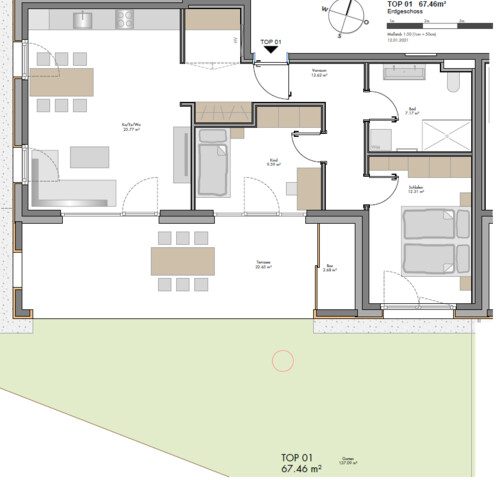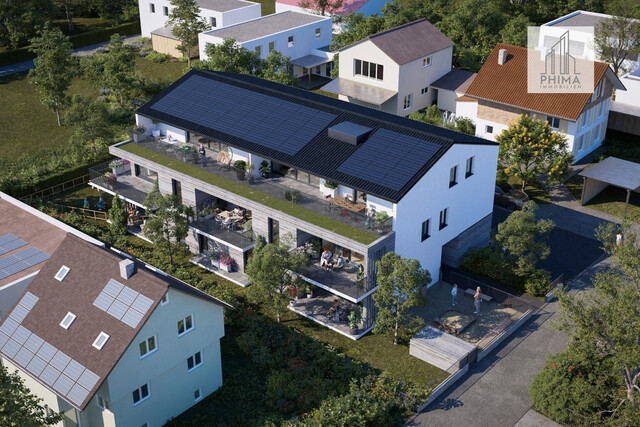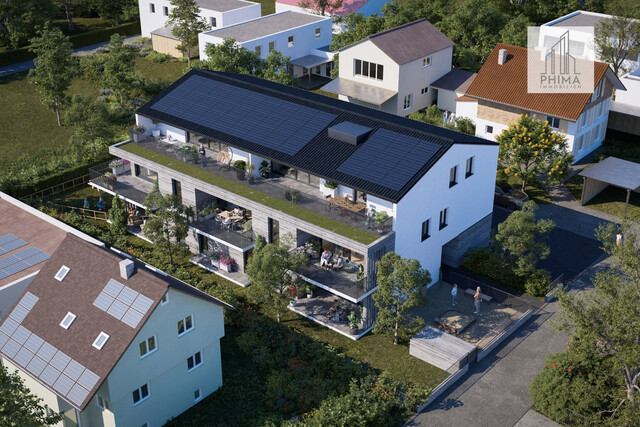Equal Pension Day: Women Still Receive Much Less Pension Than Men

On Equal Pension Day, men have received as much pension on average as women will only receive at the end of the year - 147 days later. In the previous year, the difference was slightly larger at 40.1 percent, and Equal Pension Day was on August 6th.
Equal Pension Day: Women More at Risk of Old-Age Poverty
According to a compilation by the Department of Economics, Labor and Statistics (MA 23) and the Women's Service (MA 57) of the City of Vienna for the Association of Cities, the average pension for women is 1,527 euros gross, while for men it is 2,535 euros gross. The calculation is based on the annual statistics of the pension insurance. However, when looking at new pension entries, the gap is significantly smaller at 33.9 percent in 2024 according to the pension insurance. Women receive 1,826 euros, men 2,762 euros.

Based on the overall average, this means, according to the union-affiliated Momentum Institute, a loss of 204,000 euros in cumulative gross pension for women over their entire pension life. The gap also entails a greater risk of old-age poverty, emphasized the organization - one in five female pensioners is at risk of poverty. The average net pension for women is finally only 13 euros above the poverty risk threshold of 1,661 euros at 1,674 euros per month. That of men is about 300 euros above at 1,953 euros.
Austria Among the Laggards in EU Comparison
In an EU comparison, Austria has the third largest pension gap among those over 65, according to Eurostat, at 35.6 percent. Only in the Netherlands and Malta is it even larger. The EU average is 24.7 percent. There are also regional differences within Austria. According to the Association of Cities, Vienna performs best, where Equal Pension Day takes place on September 19th, followed by Carinthia (August 10th) and Lower Austria (August 6th) at a distance. In Burgenland, the day falls on the 5th, in Salzburg on the 4th, and in Styria on August 1st. In July, Equal Pension Day is in Tyrol (24th), Upper Austria (19th), and the laggard Vorarlberg (13th).
Demands for Equal Pension Day for Wage Transparency, Paternity Leave, and Kindergartens
Initially, there were first demands: "Due to a high part-time rate and lower salary classifications, women are more likely to fall into old-age poverty and dependencies. Changing this is a long journey, but we must take it!", stated Vienna's Deputy Mayor Kathrin Gaál (SPÖ), who is also the Chairwoman of the Women's Committee of the Association of Cities. Secretary General Thomas Weninger advocated for wage transparency, the inclusion of men in unpaid care work, and an expansion of kindergartens. Only if there is good childcare can women finally work full-time and thus receive a fair wage and a just pension. The Momentum Institute advocated for an upgrading of low-wage sectors and system-relevant work, which is predominantly done by women. There is also a need for better crediting of child-rearing and care periods for pensions, mandatory paternity leave, and a reduction in working hours with full wage compensation.
FPÖ Wants More Speed
The Freedom Party criticized the pace of reform regarding the "gender pension gap". If it remains as it is, it would only be closed in decades, explained their women's spokesperson Rosa Ecker, who once again called for the consideration of care work in the pension system. "Although many women raise children, work part-time, or care for relatives, this is hardly considered in the pension system." Instead of a fair balance, women are often only given handouts. In addition to the creditable pension time for mothers and support for part-time mothers, wages in low-wage areas must also rise.
From a Green perspective, the pension gap is "the result of structural disadvantage and decades of failures - politically accountable by ÖVP and SPÖ", as their women's spokesperson Meri Disoski finds. The Greens are therefore calling for, among other things, a legal right to childcare, wage transparency, and a fair distribution of unpaid work.
SPÖ and NEOS Refer to Government Program
Women's Minister Eva-Maria Holzleitner (SPÖ) identified "still a lot of room for improvement" in terms of equality. It is about finally banishing "long-standing inequalities into the history books". Some of this is planned in the government program, said Holzleitner in the Ö1 "Midday Journal". She again referred to the planned "timely" implementation of the EU directive on wage transparency by mid-2026: "We are working hard on it," said Holzleitner. International examples show that transparency in salaries can indeed bring something and thus the wage gap can be closed.
The pink coalition partner also wishes for a rapid implementation of the measures provided for in the government program. As a "first important step" to reduce the pension gap in the future, NEOS women's spokesperson Henrike Brandstötter highlighted the sustainability mechanism in pensions. "Now it is mainly about taking structural measures to reduce the far too high part-time rate among women, which is primarily responsible for this gap." Many women have "no other choice" due to a lack of childcare options "than to withdraw from the labor market for a longer period."
(APA/Red)
This article has been automatically translated, read the original article here.
Du hast einen Hinweis für uns? Oder einen Insider-Tipp, was bei dir in der Gegend gerade passiert? Dann melde dich bei uns, damit wir darüber berichten können.
Wir gehen allen Hinweisen nach, die wir erhalten. Und damit wir schon einen Vorgeschmack und einen guten Überblick bekommen, freuen wir uns über Fotos, Videos oder Texte. Einfach das Formular unten ausfüllen und schon landet dein Tipp bei uns in der Redaktion.
Alternativ kannst du uns direkt über WhatsApp kontaktieren: Zum WhatsApp Chat
Herzlichen Dank für deine Zusendung.








